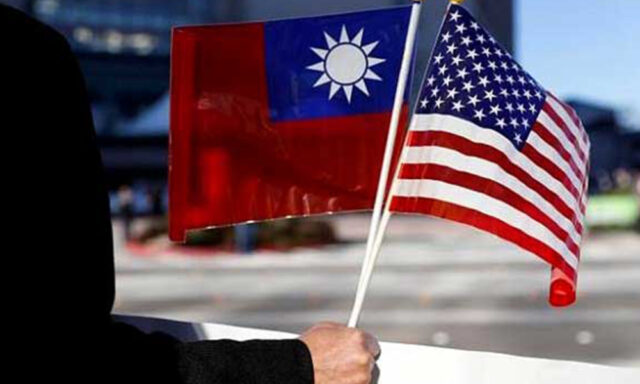Beijing: China has expressed strong opposition to the U.S. altering its stance on Taiwan. The U.S. State Department removed a statement from its website that previously said Washington does not support Taiwan’s independence. This change has sparked anger in Beijing, which called it a harmful move. Chinese officials urged the U.S. to correct its approach immediately. The revision has added tension to U.S.-China relations.
Website Update
The U.S. updated its fact sheet on Taiwan relations. The phrase “we do not support Taiwan independence” was removed. Officials called it part of a “routine” update. The U.S. maintains its commitment to the One China policy. It officially recognizes China, not Taiwan, as the legitimate government.
China reacted strongly to the wording change. Officials accused the U.S. of encouraging separatist forces. Beijing believes this move undermines regional stability. It warned Washington against interfering in Taiwan affairs. China has long opposed any outside involvement in Taiwan’s status.
Taiwan’s Status
Beijing views Taiwan as a breakaway province. It insists reunification must eventually happen. China has not ruled out force to achieve this goal. Meanwhile, many Taiwanese consider themselves independent. However, most support maintaining the current status quo.
Taiwan avoids formally declaring independence. It also does not seek reunification with China. The island prefers diplomatic and economic stability. China opposes any actions that strengthen Taiwan’s global standing. The U.S. plays a crucial role in this geopolitical balance.
U.S. Position
The U.S. continues supporting Taiwan internationally. The updated fact sheet mentions Taiwan’s membership in global organizations. The U.S. backs its participation where applicable. This shift suggests stronger support for Taiwan’s global presence. Beijing sees it as a provocative act.
The American Institute in Taiwan responded to concerns. It stated that the update clarifies U.S.-Taiwan relations. The U.S. opposes any unilateral status quo changes. This applies to actions from either side. The policy remains focused on regional stability.
China’s Response
China’s Foreign Ministry condemned the revision. A spokesperson called it a “serious regression” in U.S. policy. Beijing warned that it sends the wrong message. China sees it as an attempt to contain its influence. Officials demanded an immediate policy correction.
China accused the U.S. of stirring tensions. It sees Taiwan as a key national issue. Beijing remains firm on preventing independence movements. It continues to pressure the U.S. on this matter. Washington, however, remains non-committal.
Taiwan’s Reaction
Taiwan welcomed the updated wording. Foreign Minister Lin Chia-lung called it a positive move. He thanked the U.S. for its support. Taiwan sees this as a diplomatic boost. It continues strengthening ties with Washington.
Taiwan relies on U.S. backing. It seeks recognition in international bodies. The new U.S. stance may encourage further engagement. Beijing remains wary of growing U.S.-Taiwan ties. Future developments could escalate tensions.
Ongoing Disputes
U.S.-China relations remain strained. Taiwan remains a major point of contention. Washington continues balancing its Taiwan policy. China pressures the U.S. to uphold past commitments. Diplomatic tensions are unlikely to ease soon.
The wording change signals a policy shift. China views it as a threat. Taiwan sees it as progress. The geopolitical situation remains highly sensitive. Future U.S. actions will be closely monitored.











